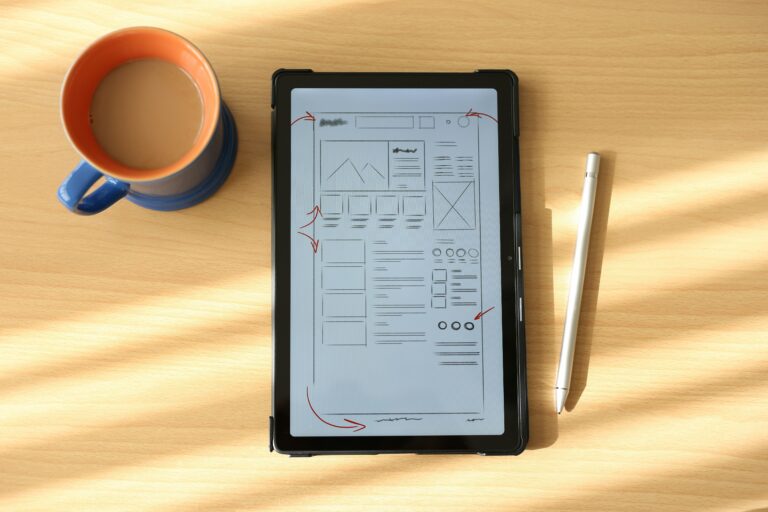Product Manager
We are seeing a large increase in the number and variety of Product Manager jobs in the market. The launch of a new product signifies a crucial time for any organisation and getting the right product management team in place, can make or break its success.
If you are looking for a Product Manager job role, read the below guide and upload your CV to us so that we can help you on your job search.
If you’re an employer looking to recruit a Product Manager, please see our product recruitment services page.
Other Product Manager roles we recruit for
What is a Product Manager?
A Product Manager is a professional responsible for the development and management of a product throughout its lifecycle. They play a crucial role in the strategic planning, creation, and launch of products, as well as their ongoing improvement and maintenance.
The primary objective of this role is to ensure that the product meets the needs of the target market and aligns with the overall business goals and objectives. They collaborate with various stakeholders, including customers, engineers, designers, marketers, and executives, to define the product vision, roadmap, and features.
Read our guide: What is a growth product manager?
Product Manager salary
A Product Manager salary would reach £60,000 to £80,000 in today’s recruitment market.
Where the salary falls within this range depends on business factors including location, size of the business, industry and experience required. More specifically, employers may take into account:
Performance and achievements: Exceptional performance and a track record of successful product launches, revenue growth, or strategic contributions may result in higher salary offers or performance-based bonuses.
Education and certifications: While not the sole determinant, individuals with relevant degrees or certifications may have an advantage in negotiating higher salaries or receiving better job offers.
Skills and expertise: In-demand skills such as data analysis, agile methodologies, UX/UI design, and project management can positively impact salary negotiations.
Product Manager career trajectory
As a Product Manager, you will have accumulate experience to demonstrate strong product management skills. You are already responsible for the end-to-end management of a product or product line, often leading product strategy, overseeing development, and coordinating product launches.
A typical career trajectory for this role could look like:
Senior Product Manager: Taking on more strategic responsibilities, such as shaping the long-term product vision, setting product roadmaps, and leading cross-functional teams. Here you often have a broader scope, managing multiple products or product lines.
Product Director: In larger organisations or more senior-level roles, Product Managers can progress to Group/Product Director positions. Here you would oversee a portfolio of products, provide guidance and mentorship to other Product Managers, and contribute to high-level business strategy and decision-making.
Chief Product Officer: In some cases, experienced Product Managers may transition to executive-level roles, such as Product Executive or Chief Product Officer (CPO). These positions involve leading the product organisation, setting overall product strategy, and driving product innovation across the company.
It’s important to note that not all career paths follow this linear progression, and there may be variations based on individual goals, company structure, and industry-specific opportunities. Additionally, some professionals may choose to specialise in specific areas such as technical product management, data product management, or entrepreneurial ventures, which may lead to different career trajectories.
Product Manager skills
Creating a job description is a difficult task for a product management role – each business will have different requirements depending on its size, how established the business is, the budget, and what product the business sells, from software, a service to a tangible product. Saying this, businesses looking to fill a product manager vacancy, are more than likely looking for these skills:
Customer first approach
Evidence of combining product experience and knowledge with market insight to deliver a product roadmap that has met and exceeded the actual needs of customers – rather than the perceived needs.
Agile working
Defined as ‘bringing people, processes, connectivity and technology, time and place together to find the most appropriate and effective way of working to carry out a particular task. It is working within guidelines (of the task) but without boundaries (of how you achieve it).’This is an important team management skill, creating the right environment for success.
Problem solving
The ability to foresee pain points and roadblocks within the product roadmap and creating a plan to overcome these in a timely and cost-effective way.
Coaching
Evidence of taking teams on a journey, from understanding the business vision and buying into the product direction completely. Businesses will want to see candidates who have showcased influencing skills and can give proven examples of coaching teams towards success.
Lifecycle experience
Becoming increasingly popular is the requirement for candidates to have ‘full stack’ experience and taking products through the whole product lifecycle, from research and development to maturity.
Technical Product Manager jobs
A Technical Product Manager role has similar responsibilities to a Product Manager. The difference in this case, is that a Technical Product Manager requires enhanced engineering and design skills, focusing more on the product itself, how it is built and its development. On the other hand, a Product Manager focuses more intensely on the customer, ensuring first and foremost that the product is customer centric.
Discover more about Product Manager qualities.
Product management interview questions
Read our guide to the top 75 product management interview questions, that are often asked at interview by employers.
Product Manager: responsibilities
- Conducting market research: Researching market trends, competitors, and customer needs to identify opportunities and make informed product decisions.
- Defining product requirements: Gathering and documenting detailed product requirements based on user feedback and market analysis to guide the development process.
- Prioritising features: Determining the most important and valuable features to include in the product based on customer needs and business objectives.
- Managing the product backlog: Creating and maintaining a prioritised list of features and tasks to be developed, ensuring efficient resource allocation and progress tracking.
- Conducting user testing: Organising and analysing user testing sessions to gather feedback and validate the usability and effectiveness of the product.
- Overseeing development sprints: Collaborating with development teams and using agile methodologies to plan and manage development cycles, ensuring timely delivery of features.
- Monitoring key metrics: Tracking and analysing product metrics such as user engagement, conversion rates, and customer satisfaction to assess product performance and identify areas for improvement.
- Conducting competitive analysis: Monitoring competitor products and strategies to identify potential product differentiators and inform product positioning.
- Coordinating product launches: Planning and executing product launches, including coordinating marketing activities, generating buzz, and ensuring a successful introduction to the market.
- Gathering customer feedback: Collecting and analysing customer feedback through surveys, interviews, and support channels to understand user needs and drive product enhancements.
Product Manager objectives
Here are the top five objectives for a Product Manager along with a summary, measurement approach, and examples of what success looks like:
Increase user adoption
The primary objective is to drive user adoption and engagement with the product. This can be measured by tracking metrics such as active users, user retention rates, and user satisfaction surveys. Success is achieved when there is a consistent increase in user adoption, high engagement rates, and positive feedback. Common tools to measure this objective include analytics platforms like Google Analytics, Mixpanel, or Amplitude, as well as customer feedback tools like Intercom or UserVoice.
Improve customer satisfaction
Ensuring customer satisfaction is crucial for product success. Measuring customer satisfaction can be done through surveys, Net Promoter Score (NPS), or customer feedback ratings. Positive results indicate a high level of customer satisfaction, frequent positive reviews, and low customer churn rates. Tools like SurveyMonkey, Qualtrics, or NPS software are often used to measure and gather customer feedback.
Drive revenue growth
This role often has revenue targets or objectives around their products. Measuring revenue growth involves tracking key revenue metrics such as average revenue per user (ARPU), conversion rates, or product-specific sales figures. Achieving revenue growth objectives is reflected in increased sales, improved monetisation strategies, and expanded market share. Common tools for measuring revenue growth include CRM systems like Salesforce, payment processors, and financial reporting tools.
Reduce time-to-market
A critical objective is to deliver products or features to the market efficiently and within specified timeframes. Measuring time-to-market involves tracking the product development lifecycle, release cycles, and comparing planned versus actual timelines. Success is achieved by consistently meeting or exceeding product release deadlines, reducing development cycles, and achieving faster time-to-market. Project management tools like Jira, Asana, or Trello are often used to track progress, set deadlines, and manage development tasks.
Monitor and improve key metrics
Managers must continuously monitor and improve key metrics aligned with business goals. These metrics can include user engagement, conversion rates, customer acquisition costs (CAC), or customer lifetime value (CLTV). Success is reflected in positive trends and improvements in these metrics over time. To measure and track key metrics, key analytical tools may be used in conjunction with business intelligence platforms, or custom dashboards that integrate data from various sources.
Product Manager job description
A typical Product Manager job description will read something like the below:
The Product Manager will have full autonomy over developing the products lifecycle as well as scaling and adapting the product to maximise growth.
The Product Manager will report directly to the Head of Product and will work alongside a team of designers, developers, and analysts. The key driver is to increase engagement and improve the relevance of ongoing content.
The Product Manager will:
- Work with customers and stakeholders to understand needs and build business cases
- Understand the opportunities, requirements and customer problems for each new product release and on-going growth optimisations
- Build the product strategy and roadmap
- Testing and delivering new features and optimisations that positively enhance the business KPIs and improve customer experience
- Work collaboratively with developers to release best in class products that users love
- Roll out product trials and product launches
- Driving innovation in the market
- Consistent UX throughout all products
- Creating high quality user stories and acceptance criteria i.e. data driven mindset
The Product Manager must have:
- A track record delivering great product portfolios
- Experience with AB and multi-variant testing
- Experience using data and analytics tools to prioritise your roadmap
- Excellent stakeholder management skills
- Experience in new product development and the innovation cycle
- Have a passion for digital, agile, software product management
Product Manager career trajectory
As a Product Manager, you will have accumulate experience to demonstrate strong product management skills. You are already responsible for the end-to-end management of a product or product line, often leading product strategy, overseeing development, and coordinating product launches.
A typical career trajectory for this role could look like:
Senior Product Manager: Taking on more strategic responsibilities, such as shaping the long-term product vision, setting product roadmaps, and leading cross-functional teams. Here you often have a broader scope, managing multiple products or product lines.
Product Director: In larger organisations or more senior-level roles, Product Managers can progress to Group/Product Director positions. Here you would oversee a portfolio of products, provide guidance and mentorship to other Product Managers, and contribute to high-level business strategy and decision-making.
Chief Product Officer: In some cases, experienced Product Managers may transition to executive-level roles, such as Product Executive or Chief Product Officer (CPO). These positions involve leading the product organisation, setting overall product strategy, and driving product innovation across the company.
It’s important to note that not all career paths follow this linear progression, and there may be variations based on individual goals, company structure, and industry-specific opportunities. Additionally, some professionals may choose to specialise in specific areas such as technical product management, data product management, or entrepreneurial ventures, which may lead to different career trajectories.
Product Manager skills
Creating a job description is a difficult task for a product management role – each business will have different requirements depending on its size, how established the business is, the budget, and what product the business sells, from software, a service to a tangible product. Saying this, businesses looking to fill a product manager vacancy, are more than likely looking for these skills:
Customer first approach
Evidence of combining product experience and knowledge with market insight to deliver a product roadmap that has met and exceeded the actual needs of customers – rather than the perceived needs.
Agile working
Defined as ‘bringing people, processes, connectivity and technology, time and place together to find the most appropriate and effective way of working to carry out a particular task. It is working within guidelines (of the task) but without boundaries (of how you achieve it).’This is an important team management skill, creating the right environment for success.
Problem solving
The ability to foresee pain points and roadblocks within the product roadmap and creating a plan to overcome these in a timely and cost-effective way.
Coaching
Evidence of taking teams on a journey, from understanding the business vision and buying into the product direction completely. Businesses will want to see candidates who have showcased influencing skills and can give proven examples of coaching teams towards success.
Lifecycle experience
Becoming increasingly popular is the requirement for candidates to have ‘full stack’ experience and taking products through the whole product lifecycle, from research and development to maturity.
Technical Product Manager jobs
A Technical Product Manager role has similar responsibilities to a Product Manager. The difference in this case, is that a Technical Product Manager requires enhanced engineering and design skills, focusing more on the product itself, how it is built and its development. On the other hand, a Product Manager focuses more intensely on the customer, ensuring first and foremost that the product is customer centric.
Discover more about Product Manager qualities.
Product management interview questions
Read our guide to the top 75 product management interview questions, that are often asked at interview by employers.
Product Manager FAQs
- What is a product manager?
- A product manager regularly assesses the competitor and customer landscape to identify a customer need and creates a product or develops a feature within an existing product to fulfil that need. A product manager will define the vision of that product, prioritising features, and capabilities, and defines the success criteria for that product.
- What is a product manager salary in the UK?
- Product Managers could expect to be paid between £60,000 to £80,000 depending on the size of the business, its growth plans, and the specific domain requirements within the particular role.
- Are Product Managers in demand UK?
- Yes, arguably a Product Managers job is one of the most in demand jobs currently. This is seen across all sectors, including tech, adtech, eCommerce, agriculture and more.
- What does a product manager do exactly?
- A Product Manager will need to combine their product experience and knowledge with market insight to deliver a product roadmap that has met and exceeded the actual needs of customers – rather than the perceived needs. A Product Manager needs to foresee pain points and roadblocks within the product roadmap and create a plan to overcome these in a timely and cost-effective way.



